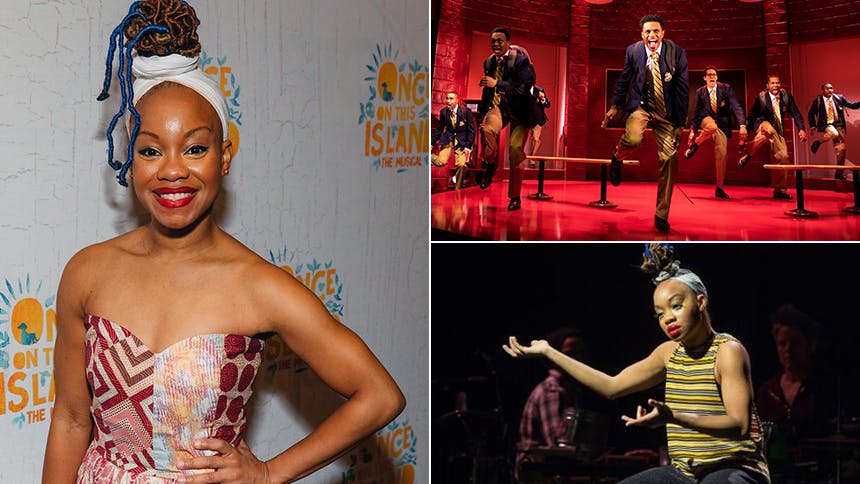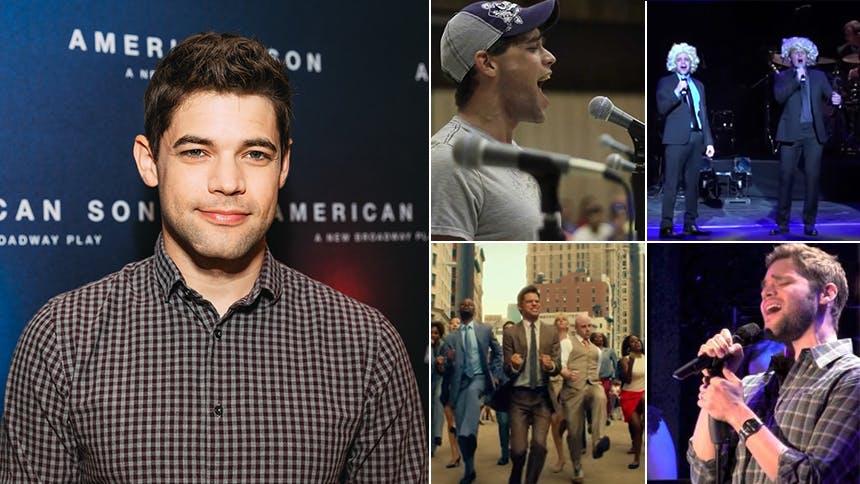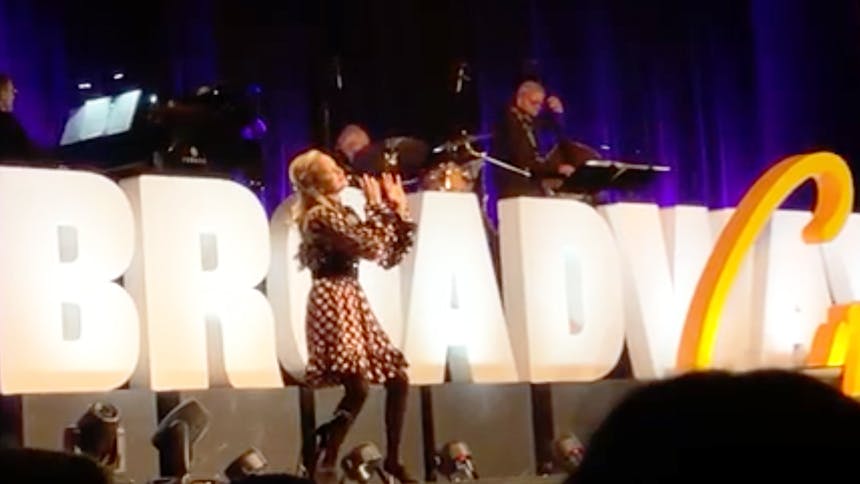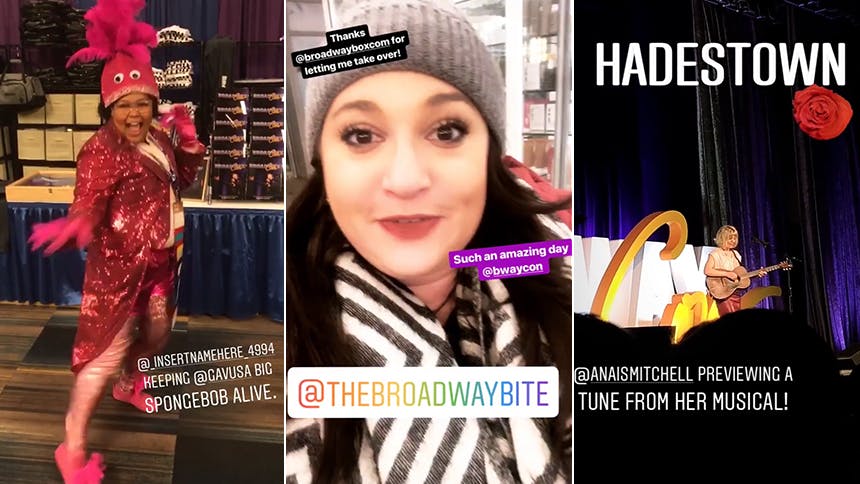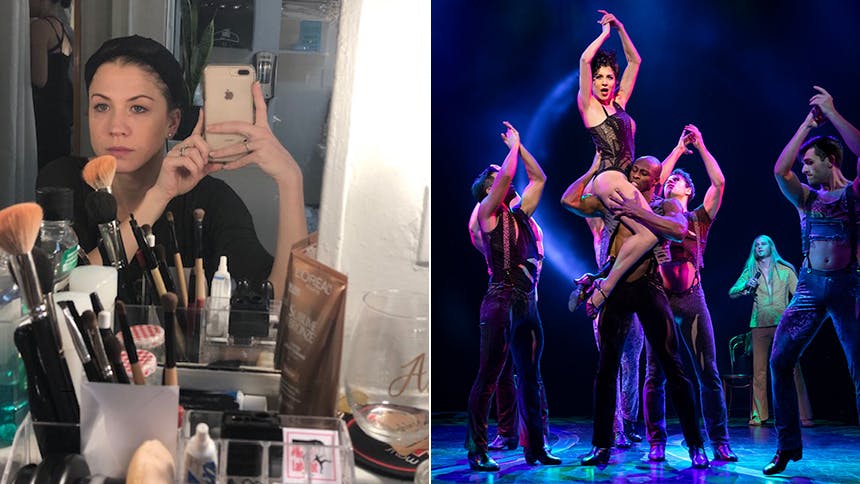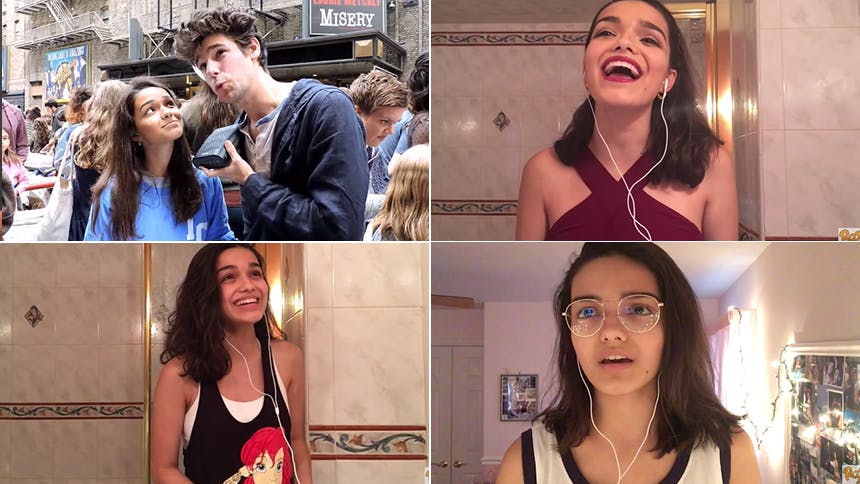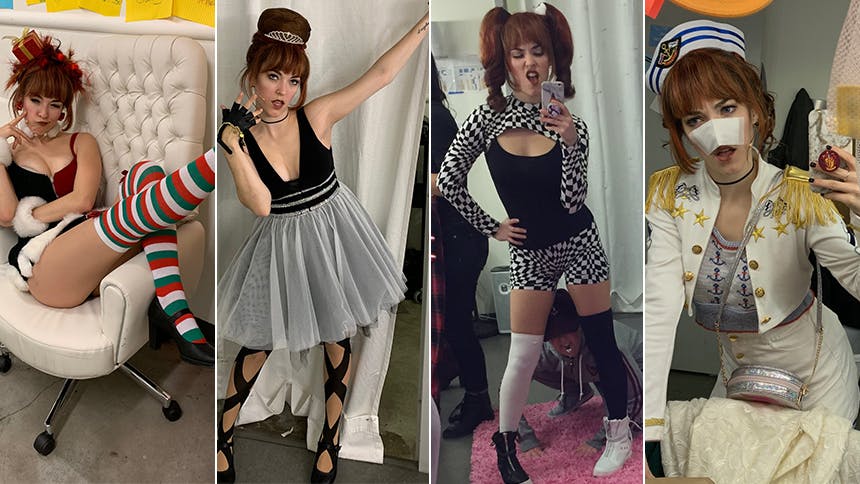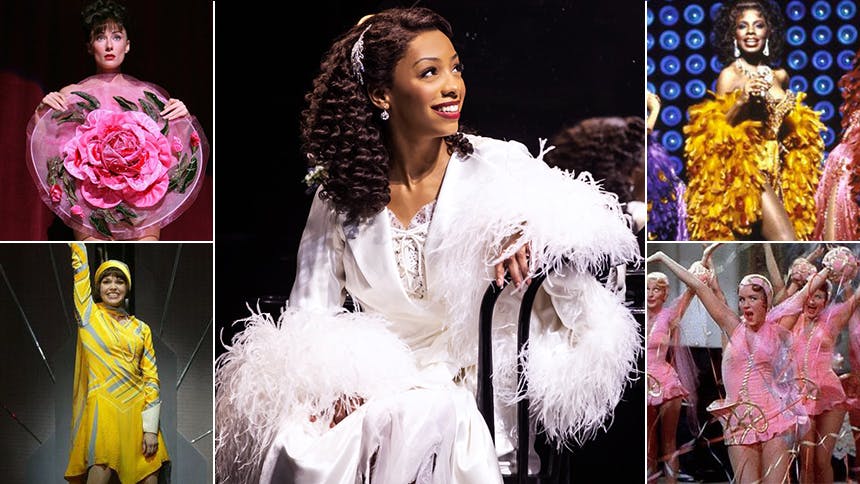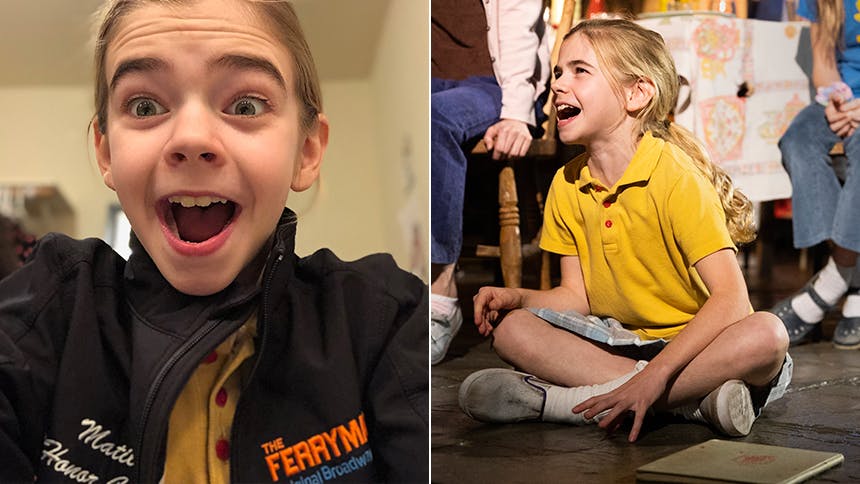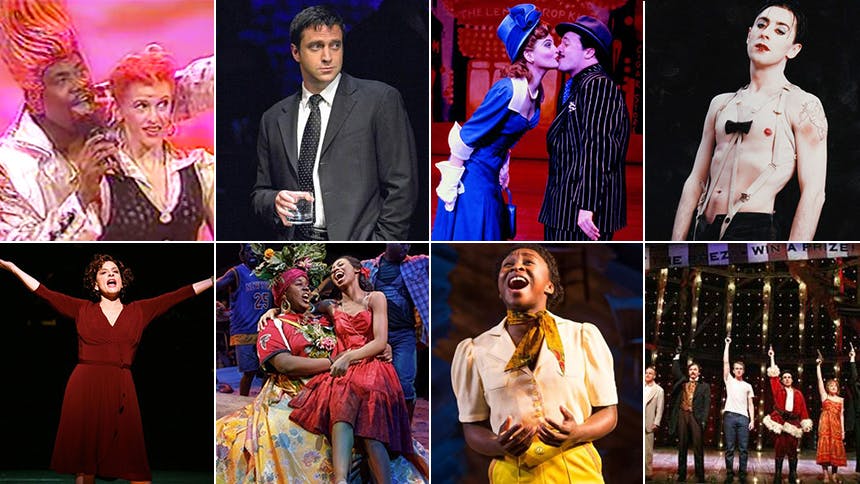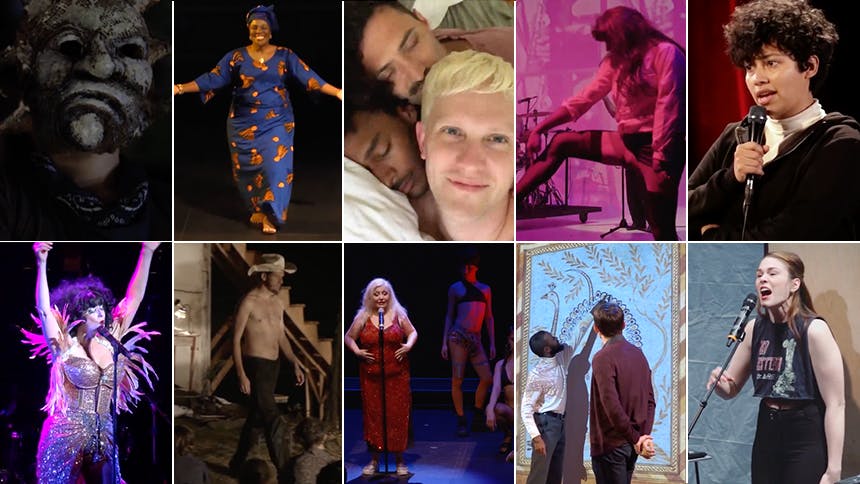After the success of the Tony-winning revival of Once On This Island, Camille A. Brown is back on Broadway as choreographer of Tarell Alvin McCraney's acclaimed new play Choir Boy
.The Dram Desk, OCC, and Chita Rivera Award nominee is having a moment right now. You may have recently seen her choreography on TV's Jesus Christ Superstar Live! or John Legend's NBC New Year's Eve performance or onstage in This Ain't No Disco, Bella, The Wiz at The Muny, or ink—the final installment of Brown’s dance trilogy about identity, which makes its NYC debut at The Joyce Theatre from February 5-10.
BroadwayBox caught up with Camille A. Brown to discuss why Choir Boy feels so powerful, not being creatively pigeonholed, and making the leap to director/choreographer.
1. How does your process begin when taking on a new work, and how is it different for a stage piece like Choir Boy and Once On This Island than it is for when you create something like ink for your dance company?
It's interesting because when you're walking into a theatre piece you have your book and you have the music; but for dance, I'm actually creating the book in a sense, so it's a little more tedious and more exploratory, in terms of the movement language for the show. Because even though I have my own choreographic voice, I also think it's important for me every time I do a new work to find a very specific movement language for that piece. I always try to push myself.
It's definitely scarier when I'm building my own shows, just because it's coming from a place of the unknown. For instance, with ink, I definitely know that I want to talk about black people's narratives, but that can be anything—that can be 1,000 hours—so it's really about narrowing it down.
When I'm doing theatre projects, I'm looking at what is the world of the work? For Once On This Island, I knew the movement language was going to be inspired by West African, Afro-Cuban and Afro-Haitian dance because Lynn and Stephen were inspired by many Caribbean islands when putting together Once On This Island. Looking at Choir Boy, I thought of the spirituals that are embedded in Tarell's work, and that kind of prep school thing, and that immediately made me think of fraternity and stepping. I said,
“This is a really great opportunity to infuse South African gumboot dance and step and really highlight these spirituals that are over 200 years old.” But what does it look like in the bodies of men from 2018?
2. On your website, it says your “driving passion is to empower Black bodies to tell their story using their own language”. How did you find your voice and vocabulary as a choreographer? What was that journey for you?
That journey was long, because I loved dance and I loved movement. I loved genres of tap, and hip hop, and modern, and African. When I was much younger, I was inspired by the choreographers and their work and their movement language. I danced with Ronald K. Brown for five seasons, so you have all of these influences and inspirations walking in your body. I think the challenge for anyone is at what point do you say, "Okay, I want to still carry my influences and my inspiration, but I want this to be my voice." So it took a lot of time, and I felt like every new piece that I created got me closer to defining who I was as a choreographer. I think a lot of it came from trial and error, and just looking at the pieces and learning lessons— learning how to communicate what I actually want from my dancers. That's incredibly important because once you get your movement language, then you have the ability to communicate it through to that person so then they can do it in their body.
Also, having these opportunities in theatre has really helped me to go back to my work and say, "Oh yes. Okay, now I understand how to drive this story a little stronger, or make this storyline clear, or focus and kind of refine this arc." It's constantly ping ponging.
3. How do you know when a project is right for you as a choreographer? And specifically, what attracted you to Choir Boy and Superstar?
I think for me it's more about living in the moment and how you feel when you're reading the script and talking with the director.
Well, [Choir Boy & Superstar] chose me; I can't say that I chose them. I was really honored that Trip [Cullman, the director] had asked me to do Choir Boy, because I'd been a fan of both his and Tarell's for a very long time. Any time that I can be a part of a story written by black people, or a person of color, that is exciting to me. This is rooted in the black experience and that's something that I love and I talk about in own work. Just the idea that these men—these nine black men—are able to sing these spirituals that represent the authenticity of black people on Broadway, that's something that I need to be a part of at that point. That's why I was so honored to join the team for Choir Boy.
For Jesus Christ Superstar, I had always wanted to do television. I watched all of these live shows, and during Hairspray, I was like, "Wow, I would really love to do a TV show like this one day… Well that's not going to happen any time soon because I don't have any TV experience." So I put that in my long-term goals. But then I just got this call basically asking me if I was interested in doing it. I thought it was so exciting because the danger for black artists in theatre is getting pigeonholed. You fall into, "Oh, well they can only do the ‘black’ shows." So, I thought this is a great opportunity for me to hopefully show my versatility and still be me but live inside of like another kind of show.
4. Do you have a dream musical you’d love to reimagine for the stage?
Yeah, The Wiz. And Sarafina! Those two I have those as goals. The other goal of mine is to be a director and a choreographer for theatre. Everything is about taking the dive, and you've just to keep taking it.
5. ink is the final piece in a dance trilogy you created about identity. What have you learned about your own identity through creating this trilogy through the years?
I feel like I'm much more grounded in living and walking with confidence. Carrying the African tradition and the African American experience to help me through a lot of the things that I have to navigate as a black female, and getting a more personal glimpse of who you are through the reflection of your ancestors.
We've been doing ink regionally, which has been great, and now to bring it back in to New York—and New York is my hometown, I was born here— it's like coming home with the work that I feel good about. This piece is something that everybody can view—I want everybody to come—but it's for black people and black stories. I am so excited to show these stories and contribute to what other artists and other choreographers are doing, which is sharing our voices.
Check out Camille A. Brown's work in 'Choir Boy' at MTC's Samuel J. Friedman Theatre on Broadway through February 24 and in 'ink' at the Joyce Theatre (February 5-10).
